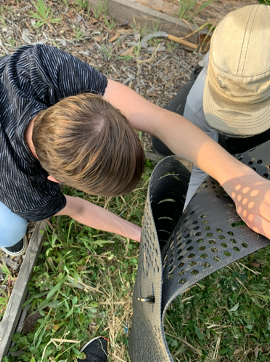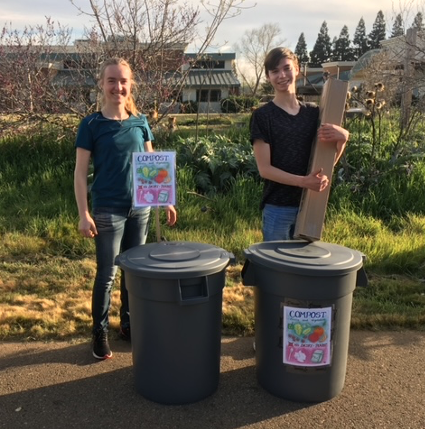2022, SACRAMENTO, CALIFORNIA, USA

Alice and Nicholas, student at George Washington Carver School of Arts and Sciences, were concerned about the food waste being generated on their school’s campus. Through their research, they learned that when this food waste ends up buried in a landfill, it undergoes anaerobic decomposition, which releases methane, a potent greenhouse gas. In their proposal, they enthusiastically declared “we believe that we can create a compost system that will help make our school green and educate others on the power of composting.” Alice and Nic reached out to the local community compost collective, ReSoil Sacramento, to get advice and learn about different techniques and options to compost at school. They bought collection bins and created signage to collect food waste at lunch. They also bought tools they needed to transport the food waste to the garden area, as well as materials such as straw to aid in the composting process. As traditional compost bins can fill quickly, ReSoil suggested composting some of the food scraps directly into existing garden beds, which proved successful. Alice and Nic were grateful for funding from Nutrien, which allowed them to learn from community experts, implement their project, and engage fellow students in the process.
